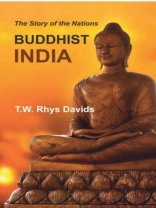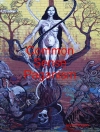A rajputs perspective on ancient India during the Buddhist ascendancy is attempted in the following work. There are obvious differences. In India, priests and nobles have always cooperated as long as their feuds were not involved. When it did, the harmony was not as great as shown on the following pages. Attempting this may be seen as a form of lese majeste. In India, the brahmin view has been revered for so long that advancing the other seems almost impertinent. Just leave it. Why bring these obnoxious peoples venomous views back from the dead? Manu and the Great Bharata, which are historically accurate for five centuries before and after Christ, were written by respectable men. Ks colour! That their writings, including renegade brahmins, are taken seriously and mentioned without sneering The orthodox brahmins, who are and always have been the cornerstone of Indian social life, said it first. They alone have power. Why bother with sourpuss? So, I apologise for not being the first. The coins and inscriptions contradictory nature did not deter their discoverers. Those theories are too shaky now to not use all evidence. As a result, the trouble of collecting it seems at least partially justified. But words are useless against such emotions. They tend to ignore the evidence and dispute the conclusions. For those who hold such views, the only option is to declare war on them. In any case, they are incompatible with historical methods, and the next generation will forget them. A similar point is the general pessimism towards historical research in India. The major kings, battles, and authors have not been preserved in the literaturethat is, in the brahmin literature, which is all the student has had access to until now. The reasons are listed below. But the other side is vital. Consider the difference between materials available for English history in the eighth or ninth centuries and Indian history at the same time. Better compared to Europe, as India is a multi-national continent. In contrast to India, we have inherited a fragmented history of the rest of Europe. The historian has access to properly edited and annotated editions, dictionaries, monographs, and other aids for earlier periods in Europe. It is still in MS in India, and what is available in print has not been fully exploited. Also, few ancient historical sites have been excavated. When we read about a lack of materials, we should remember that we are the solution. We need more. Nobody uses our materials. 1 Simply put, the men, not the facts, are lacking. Plenty of men want to work. Tradition in England is to muddle along without a system, under the not always wise constraints of private beneficence. A mediaeval benefactors wishes must therefore be followed. Theology, classics, and math are blessed. The new studies are poor. There is no Assyriology chair in England. We see the amazing absurdity of unpaid professors forced to devote time to earning a living rather than teaching or research in London. And its almost as bad in England. For example, England has two Sanskrit chairs. The German government provides over twenty times our interest in India. No one cares. In the end, we will find a way. 1 In his excellent monograph Dipavamsa und Mahdvamsa [Erlangen, 1901], Prof. Geiger A busy life forced me to write this work in snatches of time. Hopefully, other scholars, more capable and less hampered than myself, will give entrancing interest problems the attention they deserve.
T. W. Rhys Davids
Buddhist India [EPUB ebook]
Buddhist India [EPUB ebook]
Kup ten ebook, a 1 kolejny otrzymasz GRATIS!
Język Angielski ● Format EPUB ● Strony 322 ● ISBN 9788194337928 ● Wydawca Elite Agencies ● Opublikowany 2018 ● Do pobrania 3 czasy ● Waluta EUR ● ID 8235400 ● Ochrona przed kopiowaniem Adobe DRM
Wymaga czytnika ebooków obsługującego DRM












